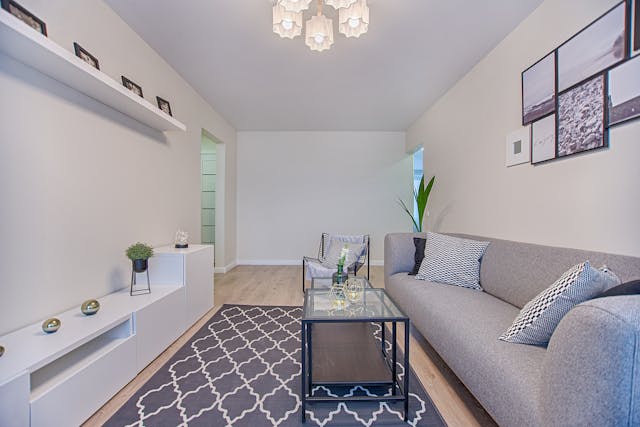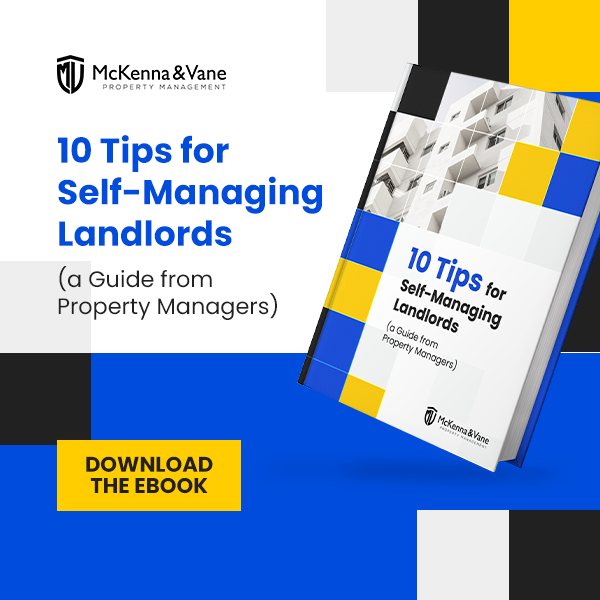Dealing With Noise Complaints

Managing tenant noise complaints can be a challenging aspect of property management. Unaddressed noise issues can lead to tenant dissatisfaction, strained relationships, and even legal troubles.
This guide aims to provide landlords with practical strategies for effectively handling noise complaints, distinguishing between valid and invalid concerns, and implementing measures to mitigate noise disturbances, tailored to the services offered by McKenna & Vane Property Management.
Confirming the Validity of the Complaint
Before taking any action, it's crucial to conduct thorough research to assess the validity of the noise complaint. This involves gathering information from both the complainant and the alleged source of the noise. Validity can be determined by examining factors such as the frequency of complaints, the number of complainants, and the nature of the disturbance.
Handling and Assessing a Noise Complaint
When faced with a noise complaint, landlords need to approach the situation with a systematic and thorough assessment. Key considerations include evaluating the frequency of complaints and the number of complainants to determine the severity of the issue.
Additionally, landlords should discern whether the noise in question results from everyday activities or if it exceeds acceptable levels.
Personal observation of the noise during different times of the day can provide valuable insights into its intensity and potential impact on tenants. Moreover, maintaining official documentation of noise complaints, including dates, times, and descriptions of the disturbances, is crucial for effective management and resolution.
By carefully considering these factors, landlords can accurately assess noise complaints and take appropriate action to address them.

Key Considerations
Consider some of the factors crucial for effectively handling and assessing noise complaints. The key considerations listed below offer valuable insights into the nature and severity of the issue, empowering landlords to develop targeted strategies for resolution.
- Frequency of Complaints: A single complaint may not necessarily indicate a significant issue. However, repeated complaints from multiple tenants warrant closer attention and intervention.
- Number of Complainants: The more tenants report the same noise disturbance, the more likely it is a legitimate concern that requires action.
- Determining Normal Activities Causing the Disturbance: Landlords should assess whether the noise in question is a result of everyday activities such as walking, talking, or using appliances: Understanding what constitutes normal noise levels in a residential setting is essential for fair assessment.
- Personal Observation of the Noise: Landlords should personally observe the noise during different times of the day to accurately gauge its intensity and potential impact on tenants.
- Official Documentation of Noise: Keeping records of noise complaints, including dates, times, and descriptions of the disturbances, can provide valuable evidence for future reference or legal purposes.
Addressing Valid Noise Complaints
Once the validity of a noise complaint is established, landlords can take proactive steps to address the issue and improve the living conditions of all tenants. Some effective strategies include:
Improving Flooring
Installing carpets or rugs can help absorb sound and minimize the impact of footsteps or movement on hard surfaces.

Enhancing Insulation
Adding insulation to walls, ceilings, and floors can reduce the transmission of noise between units, thereby decreasing the likelihood of disturbances.
Upgrading Windows
Double or triple-pane windows with soundproofing properties can significantly diminish outside noise and improve the overall acoustic environment within the property.
Managing Tenant Behavior
Educating tenants about the importance of respecting quiet hours and being mindful of their noise levels can foster a more harmonious living environment.
Dealing with Invalid Noise Complaints
In instances where noise complaints are determined to be invalid or unfounded, landlords should communicate openly with both the complainant and the alleged source of the noise. This may involve mediation, clarification of expectations regarding acceptable noise levels, and encouraging respectful communication between tenants.
- Mediation: Landlords should act as mediators between the complainant and the alleged source of the noise, facilitating constructive dialogue to address misunderstandings.
- Approaching with Sensitivity and Diplomacy: Landlords must approach invalid noise complaints with sensitivity and diplomacy. By demonstrating understanding and empathy, landlords can effectively resolve misunderstandings and maintain positive tenant relationships.
- Clarification of Expectations: Clear communication of expectations regarding acceptable noise levels is essential. Landlords should ensure that tenants understand what constitutes reasonable noise and strive to establish consensus on noise-related issues.
- Documentation: Keeping records of the resolution process can provide clarity and transparency. Documenting discussions, agreements, and outcomes helps prevent future disputes and promotes a harmonious living environment.
- Encouraging Respectful Communication: Landlords should encourage tenants to communicate respectfully and constructively when discussing noise concerns. Fostering an environment of mutual respect can help prevent conflicts and promote peaceful coexistence.

Landlords need to approach these situations with sensitivity and diplomacy, seeking to resolve misunderstandings and maintain positive relationships among tenants. Additionally, documenting the resolution process can provide clarity and transparency, helping to prevent future disputes and promote a harmonious living environment.
Set Quiet Hours
Establishing designated quiet hours during which tenants are expected to minimize noise can help prevent disturbances and promote a peaceful living environment for all residents. Clear communication of these guidelines through lease agreements or community rules is essential for compliance.
Implementing Effective Tenant Screening Practices
Preventing noise issues from arising in the first place begins with thorough tenant screening processes. By carefully vetting prospective tenants for their lifestyle habits, noise tolerance, and previous rental history, landlords can minimize the likelihood of future noise complaints and foster a conducive living environment for all residents.
McKenna & Vane Property Management specializes in comprehensive tenant screening services, ensuring that landlords have the tools and insights they need to select tenants who will contribute positively to the community.
Bottom Line
In conclusion, effectively dealing with noise complaints requires landlords to carefully assess the validity of each concern, take proactive measures to address legitimate issues, and implement strategies to prevent future disturbances.
McKenna & Vane Property Management understands the complexities of property management and offers comprehensive solutions to assist landlords in managing noise complaints effectively. From conducting thorough tenant screenings to implementing soundproofing measures, McKenna & Vane provides the expertise and support needed to maintain harmonious relationships among tenants and ensure the overall satisfaction of property occupants.
With McKenna & Vane, landlords can trust reliable property management services that prioritize tenant comfort and well-being.
